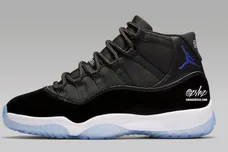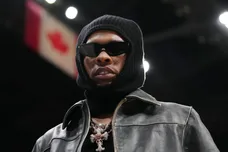It’s only a good thing that Big Sean is back. It’s a better world when he’s making music. His last album came out in 2017 and two years without an album is a rarity nowadays, although it wasn’t always. We tend to forget that not so long ago, taking two years to release new material was not surprising. We’ve grown accustomed to an endless stream of content— for better or worse. The demands on artists to constantly put out new material to stay relevant undermines the album model. It’s a short-term win for fans because we get new singles frequently, collaborations and features often— but the demand for content means that artists can’t focus on crafting that perfect album. If an artist has to take a break in order to make the space and time necessary to create an album, we have to reconsider whether we really prefer piecemeal singles over a complete album.
What we learned on “Overtime” is that Big Sean didn’t take a hiatus in the artistic sabbatical sense of the word. He makes a point of saying that he didn’t take a break, but that he broke. The difference is crucial. A break implies choice— maybe the artist wanted to recharge or find a new source of inspiration. To break means that he had no choice.
Theo Wargo/Getty Images
The revelation that the two-year hiatus was unplanned provides necessary context for the two songs released in succession. To appreciate the messages behind “Overtime” and “Single Again” to the fullest, we have to know that Big Sean’s break wasn’t as simple as taking time off. That being said, we don’t know what happened exactly that prompted him to make these songs— and that’s a good thing. So many celebrities and musicians air their dirty laundry on social media, giving us play-by-plays of break-ups and personal drama. Big Sean has been quiet on all platforms for a while and even though there is plenty of speculation and tabloid nonsense, his private life remains private.
What he shares on “Single Again” is an emotional truth that keeps details vague. It’s not a telling of his side of the story or expressing petty grievances. What triggered Big Sean’s breaking point and what ‘actually happened’ during his break-up is irrelevant to the quality of the art. Keeping gossip and bad blood out of the song means that it can be listened to for its musical merit and it won’t inspire the played out, repetitive feuding that so many break-up tracks do.
Big Sean’s biggest headline in the past two years was probably the shoutout he received on Ariana Grande’s “Thank U, Next.” If you scroll through the “Single Again” comments on YouTube, you’ll notice that there’s a common comparison: “Single Again” is Big Sean’s version of “Thank U, Next.” It’s not inaccurate. Both songs champion putting yourself first. Both talk about their single mothers. Both artists weave in their exes in a positive way. Ariana mentions them by name and thanks them. Big Sean does something that feels even bolder— he features his ex. The fact that Jhené Aiko is on “Single Again” tells you everything you need to know about the priority of art over personal vendetta. Of course we believe music should be an outlet to express anger and heartbreak and the full range of human emotions— but when a song is basically a diary entry on top of a slapdash arrangement, it loses sight of what art is supposed to do. The integrity of the song cannot rest entirely on the tell-all, heart on sleeve gimmick. “Single Again” is complemented by, rather than reliant on, the personal nature of its lyrics.
Vanni Bassetti/Getty Images
Big Sean has always been an earnest voice. He preaches family, love for his home city, love for his Grandma— but his new releases indicate he’s reached a level that’s even more honest than before. On “Single Again,” he even delineates his former and current selves: “Got me feeling like ‘I don’t fuck with you’/Oh, nah, nah, that’s the old me.” This distancing of comeback Big Sean from his former self is the biggest statement from his new releases. The two new singles capture Big Sean’s duality and hint at the maturity of an artist who knows who he is and is over the "proving himself" phase of his career.
“Overtime” is in the vein of “Moves” and “Bounce Back.” It’s braggadocios and cocksure— it’s entertaining and it’s a crowd pleaser (“In this hot girl summer I’m just trying to find a wife”). It sounds like Big Sean enjoyed making it and that makes “Overtime” enjoyable to listen to. The Kawhi laugh, “Hovi Baby,” and the Pete Weber outro— he doesn’t care what you think or that you get it. “Single Again” has the storytelling, wisdom, and thoughtfulness of “One Man Can Change the World.” The sound is mellifluous and it takes you into a vulnerable, intimate world. That Big Sean can occupy both of these spheres effortlessly speaks to his talent and versatility and to the aptness of the title of his upcoming album: Don Life.
A don is the counter-intuitive combination of power and empathy. It was the realest Don, Vito Corleone, who said, “A man who doesn’t spend time with his family can never be a real man.” Big Sean’s human side doesn’t detract from his capability. Being able to write something like “Single Again” and release it back-to-back with “Overtime” demonstrates a depth of artistry that is necessary in a career that transcends trends.









